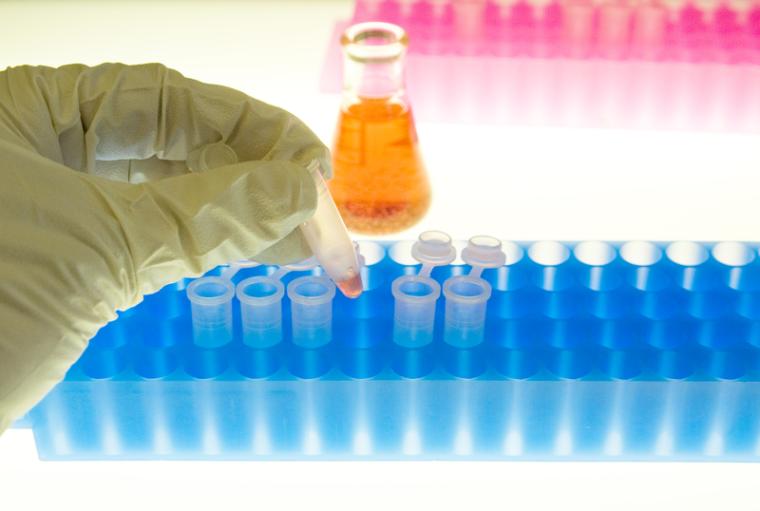
A Swedish cancer diagnostics developer is reinventing itself and transplanting its North American headquarters from the Boston area to North Carolina’s booming Research Triangle area to become more efficient and effective.
Immunovia said in a recent news release it had completed the move of its Marlborough, Mass., site and established its U.S. headquarters and research lab in a downsized and streamlined Durham facility led by Clinical Laboratory Director Lisa Ford, Ph.D., a veteran of more than two decades of research leadership in the Triangle.
Jeff Borcherding, president and CEO, said the company has filed to transfer its Clinical Laboratory Improvement Amendments license from the Marlborouogh lab to the Durham lab on Capitola Drive. He said the company will also be renewing its accreditation with the College of American Pathology. Immunovia has a current Durham mailing address of 6409 Fayetteville Rd., though it hasn’t yet changed the U.S. address on its website.
Ford holds a Ph.D. from Duke University in bioorganic chemistry and board certification as a high-complexity clinical laboratory director from the American Board of Bioanalysis. She served as a clinical laboratory director for more than 12 years at Durham-based Metabolon, as well as science leadership roles with Durham’s SCYNEXIS and Catalent Pharma Solutions.
“We are very excited to appoint Lisa as lab director for Immunovia,” said Borcherding in an April 29 news release. “Lisa brings deep expertise in creating lab-developed tests and leading diagnostic labs. As a consultant to Immunovia over the last few months, Lisa has made fantastic contributions to our R&D efforts. She is very bright, analytical, thorough, and practical.”
In the announcement Ford said she is now leading a three-person team in the new lab. "We are excited to announce that our new lab is fully operational and staffed,” she said. “We have recruited two talented scientists, Dr. Robyn Pescatore and Dillon Josey, who will focus on the continued development of Immunovia's next-generation test." She said the lab will conduct a large clinical validation study of the new test in the fourth quarter of 2024.
Pescatore, Ph.D., became Immunovia’s laboratory supervisor after nearly four years as a scientist at Durham’s BioAgilytix. Josey, a 2020 human biology graduate from North Carolina State University, worked at several North Carolina life sciences companies before joining Immunovia as a medical laboratory scientist.
Parent company Immunovia AB was founded in 2007, based on cancer research in the Department of Immuntechnology at Lund University and CREATE Health Cancer Center, Sweden. Its focus is on early diagnosis of pancreatic cancer using a simple blood-based system to help increase survival rates of the disease.
Immunovia launched its first pancreatic cancer diagnostic, which it called the IMMray PanCan-d test, in 2021. The publicly traded company has since abandoned that test to focus on what it calls its next-generation test. It says its new protein assays, developed in collaboration with Swiss diagnostics company Proteomedix, are “significantly more accurate” than the former product, especially among people of African ancestry. Immunovia says the new assays are performed on an ELISA platform and are faster, cheaper, and less-labor intensive than the IMMray platform.
The company says the U.S. is the world's largest market for detection of pancreatic cancer, with some 1.8 million people who are at high risk for the disease and could benefit from Immunovia’s annual surveillance testing.
“Pancreatic cancer is a brutal and lethal cancer,” said Borcherding. “People at risk for pancreatic cancer need a simple, fast, and easy blood test to detect cancer early. We are very excited about the potential of our test to meet this need and increase survival rates for these patients.”
The American Cancer Society says pancreatic cancer risk factors include lifestyle factors that people can change, and other factors that people can’t change.
Those that people can change include:
- Smoking and other tobacco use
- Overweight
- Diabetes
- Chronic pancreatitis, often from heavy alcohol use and smoking
Workplace exposure to some chemicals such as carcinogens used in the dry cleaning and metal working industries
The factors people can’t change include:
- Age (the average age at the time of diagnosis is 70)
- Gender (men are slightly more likely to develop pancreatic cancer, maybe from lifestyle factors)
- Race (African Americans are slightly more likely to develop it)
- Possible genetic factors in 10% to 15% of cases
Apple co-founder Steve Jobs, Jeopardy host Alex Trebek, Supreme Court Justice Ruth Bader Ginsburg and Aretha Franklin are among well-known people who have died in recent years from pancreatic cancer.
"Research Triangle Park offers access to top talent at a reasonable cost. Moving to a smaller lab in RTP is a key aspect of our ongoing efforts to be a leaner, more efficient company," said Borcherding, in the company’s news release announcing the move.
